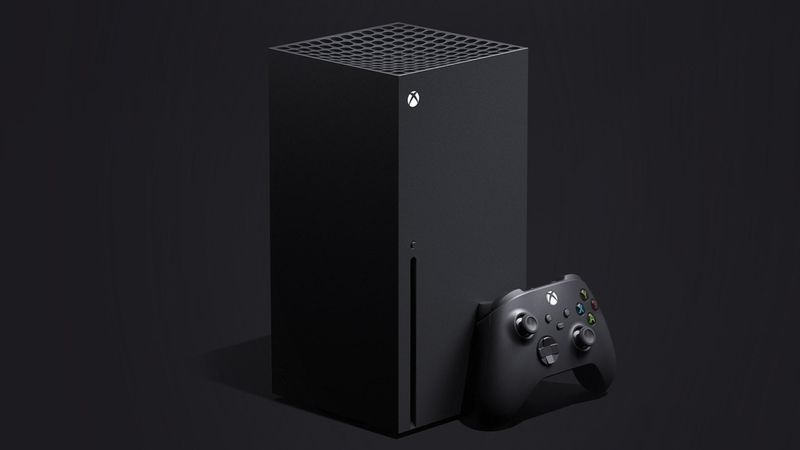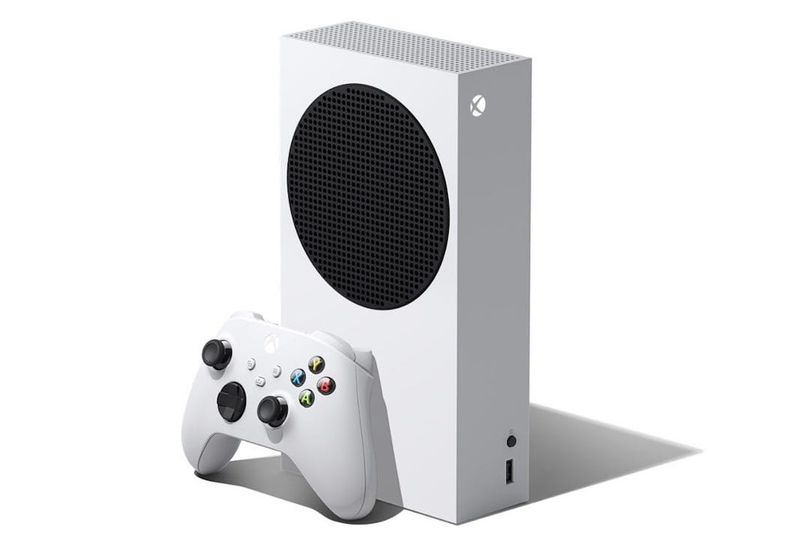Xbox Series X vs Series S: Which one should you buy and why
Microsoft for its new generation of console has chosen to launch two different starting models. It seeks to offer an affordable solution and a more powerful and complete option. We are going to see in this article what is the difference between the Xbox Series X and the Series S , in order to choose the one that interests us the most.
Index of contents
Specifications of the new Microsoft consoles
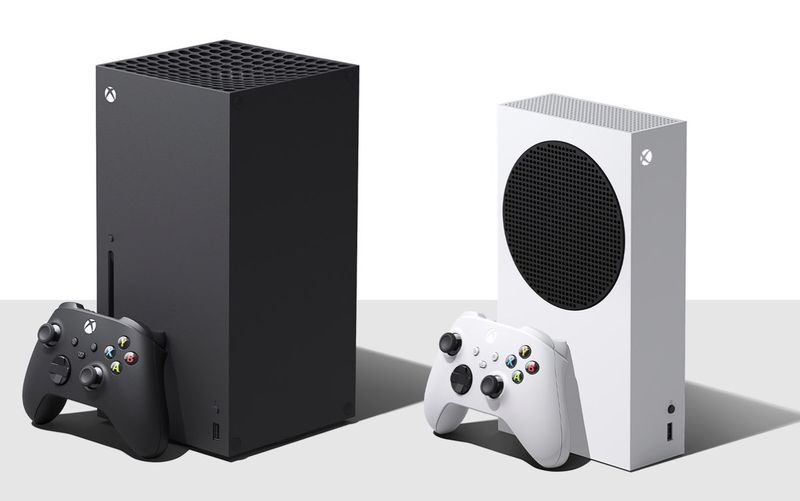
As we said, Microsoft has released two versions of the Xbox console for this new generation. We first have the Xbox Series X, which is more powerful than the other model launched and has a Blue-ray reader , among others. Then we have the Xbox Series S , a much simpler console in terms of hardware and that lacks a reader , in addition to other minor changes.
Xbox series x
This new console is characterized by being based on an AMD SoC that has been semi customized specifically for this console. Specifically, this SoC has 8 AMD Zen2 architecture cores and a total of 52 RDNA2 architecture Compute Units . 16 GB GDDDR6 has been integrated , of which 10 GB is exclusive for the graphics card. This console is designed to support 4K @ 60FPS resolutions , which is not bad at all.
Additionally, this console has 1 TB of capacity type NVMe PCIe Gen4 SSD. This new console has USB 3.2 connectivity to connect external storage units or peripherals and an HDMI 2.1 port . It also has a 4K UHD Blue-ray reader .
Full Specifications:
| Processor (CPU) | 8 cores at 3.8 GHz (3.66 GHz with SMT) Custom Zen 2 |
| Graphics (GPU) | 52 CUs at 1.825 GHz Custom RDNA 2 |
| GPU power | 12.15 teraflops |
| RAM | 16GB GDDR6 |
| Memory bandwidth | 10GB at 560GB / s, 6GB at 336GB / s |
| Performance target | 4K, 60fps, up to 120fps |
| Internal storage | 1 TB PCIe Gen 4 NVME SSD |
| Internal storage expansion | 1 TB Expansion Card |
| Support for external HDD drives | USB 3.2 |
| I / O performance | 2.4 GB / s (uncompressed), 4.8 GB / s (compressed) |
| Disc reader | 4K UHD Blu-Ray |
| Video output | HDMI 2.1 |
| Dimensions | 301mm x 151mm x 151mm |
| Price | 499 euros |
Xbox Series S
Something very interesting in this new generation of consoles is the launch by Microsoft of a 100% digital console. It is not that the console does not really exist and only exists in a digital frame, we mean that it lacks a Blue-ray reader. This means that access to video games can only be acquired by acquiring a digital copy of it. Something that has been established on PC for many years thanks to Steam, Valve’s “digital store”.
This console reduces the amount of Compute Units (CU) of the AMD RDNA2 GPU , to greatly differentiate itself from the Xbox Series X. The console, having only 20 CUs, has limitations in the supported resolution , which remains at 1440p @ 60FPS . Storage capacity is also reduced, moving to a 512GB NVMe PCIe Gen4 SSD . The amount of memory also falls, remaining at 10 GB GDDR6 , of which 8 GB is dedicated exclusively to the GPU.
Full Specifications:
| Processor (CPU) | 8 cores at 3.6 GHz (3.4 GHz with SMT) Custom Zen 2 |
| Graphics (GPU) | 20 CUs at 1.565 GHz Custom RDNA 2 |
| GPU power | 4 Teraflops |
| RAM | 10GB GDDR6 |
| Memory bandwidth | 8GB at 224GB / s, 2GB at 56GB / s |
| Performance target | 1440p, 60fps, up to 120fps |
| Internal storage | 512 GB PCIe GEn 4 NVME SSD |
| Internal storage expansion | 1 TB Expansion Card |
| Support for external HDD drives | USB 3.2 |
| I / O performance | 2.4 GB / s (uncompressed), 4.8 GB / s (compressed) |
| Disc reader | Does not have |
| Video output | HDMI 2.1 |
| Dimensions | 275mm x 151mm x 63.5mm |
| Price | 299 euros |
What are the differences between Xbox Series X and Series S
Now is the time to directly compare the capabilities of each of Microsoft’s consoles. We will see the differences between the Xbox and Xbox Series X Series S . The differences between them are:
Processor (CPU)
The Xbox Series X has an 8-core AMD Zen2 architecture processor that can run at 3.8 GHz . It is interesting that Microsoft indicates that if the SMT is activated, the frequency drops to 3.66 GHz. The Xbox Series S maintains the number of cores and their architecture , changing only the frequencies. It is reduced to a frequency of 3.6 GHz and if the SMT is activated the frequency drops to 3.4 GHz.
We must indicate that the SMT is activated in certain cases, it is not always active. That the SMT is in operation will depend directly on the game that we are executing at all times and how it is programmed.
Graphics card (GPU)
Both Microsoft consoles make use of a GPU designed by AMD under the RDNA2 architecture. The Xbox Series X has a GPU of 52 Compute Units running at a frequency of 1,825 MHz, which offers a power of 12.15 Teraflops. While the Xbox Series S has a GPU of 20 Compute Units working at a frequency of 1,565 MHz and a power of 4 Teraflops.
As a data to say that the Xbox One X offered 6 Teraflops, which is more than the 4 Teraflops of the Xbox Series S.
Storage
These two consoles make use of solid state storage (SSD) via PCIe Gen4 interface . The most positive thing in this case is that we left behind the HDD storage units, which generated so much bottleneck. Now the loading times of the games are reduced in a brutal way, something that is always positive.
The big difference between the two shells lies in the capacity. While the Xbox Series X offers 1TB capacity, the Xbox Series S offers just 512GB of capacity . Both consoles also offer the possibility of expanding the capacity through the «Expansion Cards» , up to 1TB (which is added to the internal capacity).
RAM
For this console, a combination of RAM memory for the processor and VRAM memory for the GPU has not been chosen, it has been unified. Both consoles make use of GDDR6 memory for the CPU and GPU, although the amounts and bandwidth vary.
The Xbox Series X has 16GB of GDDR6 memory , of which 10GB is destined for the GPU offering a 560GB / s bandwidth and 6GB is destined for the CPU with a 336GB / s bandwidth. But the Xbox Series S loses a lot of memory and bandwidth. In the Xbox Series S we went to only 10GB of GDDR6 memory , of which 8GB with a bandwidth of 224GB / s are destined for the GPU and 2GB with a bandwidth of 56GB / s are destined for the CPU .
Resolution
The number of Compute Units and the amount of VRAM memory for the GPU, as well as the memory bus affect performance. It is for this reason that only the Xbox Series X has the capacity to play games in 4K @ 60FPS resolution. Some games even for this console will be able to reach rates of up to 120FPS in some cases.
On the other hand, the Xbox Series S resolution is noticeably limited. This console, with less graphics power, can only run games at a maximum resolution of 1440p , although the frame rate ranges between 60-120FPS. As we can see, the graphic quality drops significantly.
Dimensions
Both consoles have differences in format and sizes. The reason why they are of a different format has to do with their hardware. The Xbox Series X is larger because it requires a stronger heatsink for the AMD SoC. It also influences the dimensions having an optical drive for Blue-Ray.
Meanwhile, the Xbox Series S is more compact, because its hardware is simpler and requires a simpler heatsink. In addition, this console lacks an optical drive, which allows a more compact console to be developed.
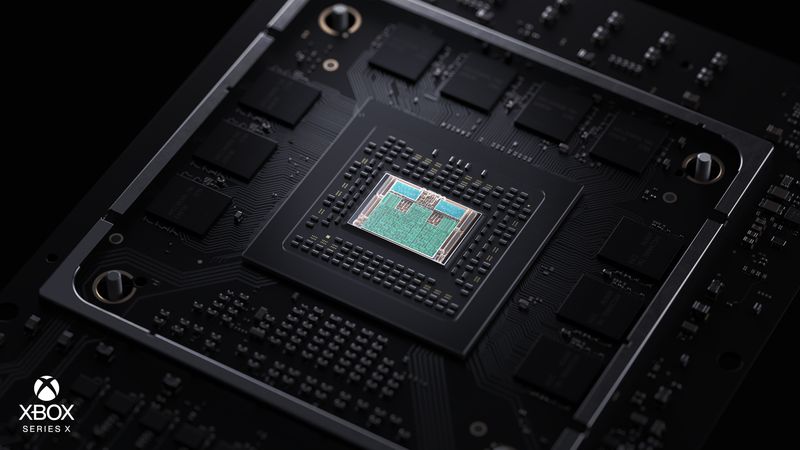
Are the Xbox Series X games compatible with the Xbox Series S
We’ve found that many users are wondering if they will enjoy the Xbox games on the Xbox Series X Series S . This is logical, since there is a big difference in hardware between the two consoles. The answer could not be simpler: YES .
This means that any game released for the Xbox Series X will be playable on an Xbox Series S. We must bear in mind that it will not be in the same conditions, but will be “adapted”. Specifically, there will be a reduction in resolution , since we will go from running the game in 4K resolution to running it in 1440p resolution.
Note that the Xbox Series S will be compatible with the Xbox Series X games and all games from previous generations of consoles. This means that in the Xbox Series S we can enjoy games from the Xbox, Xbox 360 and Xbox One. In addition, in this console we will enjoy Smart Delivery technology, which will improve the performance of classic games.
There is a difference between the controls of both consoles
Microsoft for the Xbox Series X has developed a new controller, with new functions but a similar design to previous generations. The Xbox Series S uses this same controller , so there is no difference between the two controls. This new controller will also be compatible with smartphone, PC and Xbox One consoles . But in addition, the controls of the Xbox One consoles are compatible with the new Microsoft consoles.
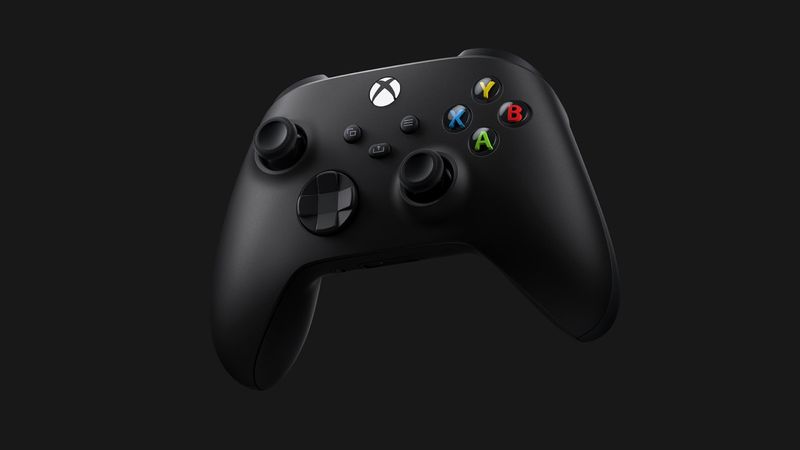
Final words on the Xbox Series X vs. Xbox Series S comparison
The differences between the two new Microsoft consoles are obvious, not only on a physical level, in terms of hardware. While the Xbox Series X console is intended for 4K gaming and to offer support for physical games, the Xbox Series S is intended for digital games. In addition, Microsoft has given the Xbox Series S the ability to run titles from other generations, which makes it a kind of “retro-arcade console.” We can enjoy classic games that we have not enjoyed for years or for the youngest, explore the classics.
Taking into account the difference in performance between the Xbox Series X and the Xbox Series S, the most interesting is the first. Not only because it has a disc player and enjoying the same features as the company’s simplest console, but also because it is more powerful. The Xbox Series X is priced at € 499 and the Series S is priced at € 299, a difference of just € 200. It becomes clear that the most interesting is the Xbox Series X, for being much more powerful, not for nothing else.



